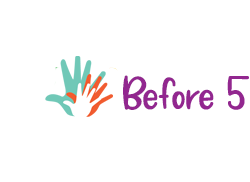Gary Chapman and Ross Campbell make some interesting points in their book, The Love Languages of Children about Love Language #4, Gifts. “The giving and receiving of gifts can be a powerful expression of love, at the time they are given and often extending into later years. The most meaningful gifts become symbols of love, and those that truly convey love are part of a love language. Yet for parents to truly speak love language number four-gifts- the child must feel his parents genuinely care. For this reason, the other love languages must be given along with a gift. The child’s emotional love tank needs to be kept filled for the gift to express heartfelt love.”
Of all the love languages, I think gifts is the most complicated one to balance and apply. The authors share with us in chapter 5, gifts must be combined with another love language, so not to be misinterpreted by a child that the gift it is an expression of conditional love (birthday and special holiday gifts get a pass on this). Gifts can be an easy way to express your feelings towards your child, but if the gift is the only love language your child is receiving from you, it could be sending the wrong message.
I’m sure, we’ve all given a child a gift that wasn’t well received; most likely, a red flag something has gotten off track. Are we giving gifts too freely, substituting a tangible gift in place of “giving of ourselves”, or giving a gift to make us feel better about something we did/didn’t do? Or are we being pulled in to buy gifts, especially toys, by peer pressure or by television ads?
Do you think advertisers have done too good a job “selling” us and our children on what we think, and our children think, they need? How do parents brace against this, especially during hard times when finances don’t allow for many extras, like maybe living through a pandemic? If we are going overboard giving our children gifts and then we’re disappointed or frustrated when they don’t seem thankful, maybe it’s time to look inward and rethink how and when we give gifts going forward
I think the authors are right on target when they offer ways to give your child meaningful gifts that come from the heart and communicate to your child that you love and care about them. At the end of chapter 5, Chapman and Campbell provide a list of clever gift ideas that aren’t expensive or don’t cost any money. They suggest giving your child a coupon for one “free” dinner of their choice (can be one you cook or at their favorite restaurant), extending their bedtime a half hour, putting a sweet note in their room, the bathroom, their book bag, etc., or making them a special snack when they’re having a rough day…. you get the idea.
As I was reading through this love language chapter, I couldn’t help thinking about the ol’ saying “it’s not the gift that counts, it’s the thought.” Henry van Dyke, Princeton University, coined this phrase in the early 1900’s; one of the great truisms that’s withstood the test of time.
Today, tomorrow, or next week, give a heartfelt gift to a child, loved one, friend, or someone you don’t even know. It will make their (and your) day, month, or even year!
If you’re reading this blog, you’ve given me a precious gift; the gift of your time. And I am most grateful and thankful.
Until next time……



